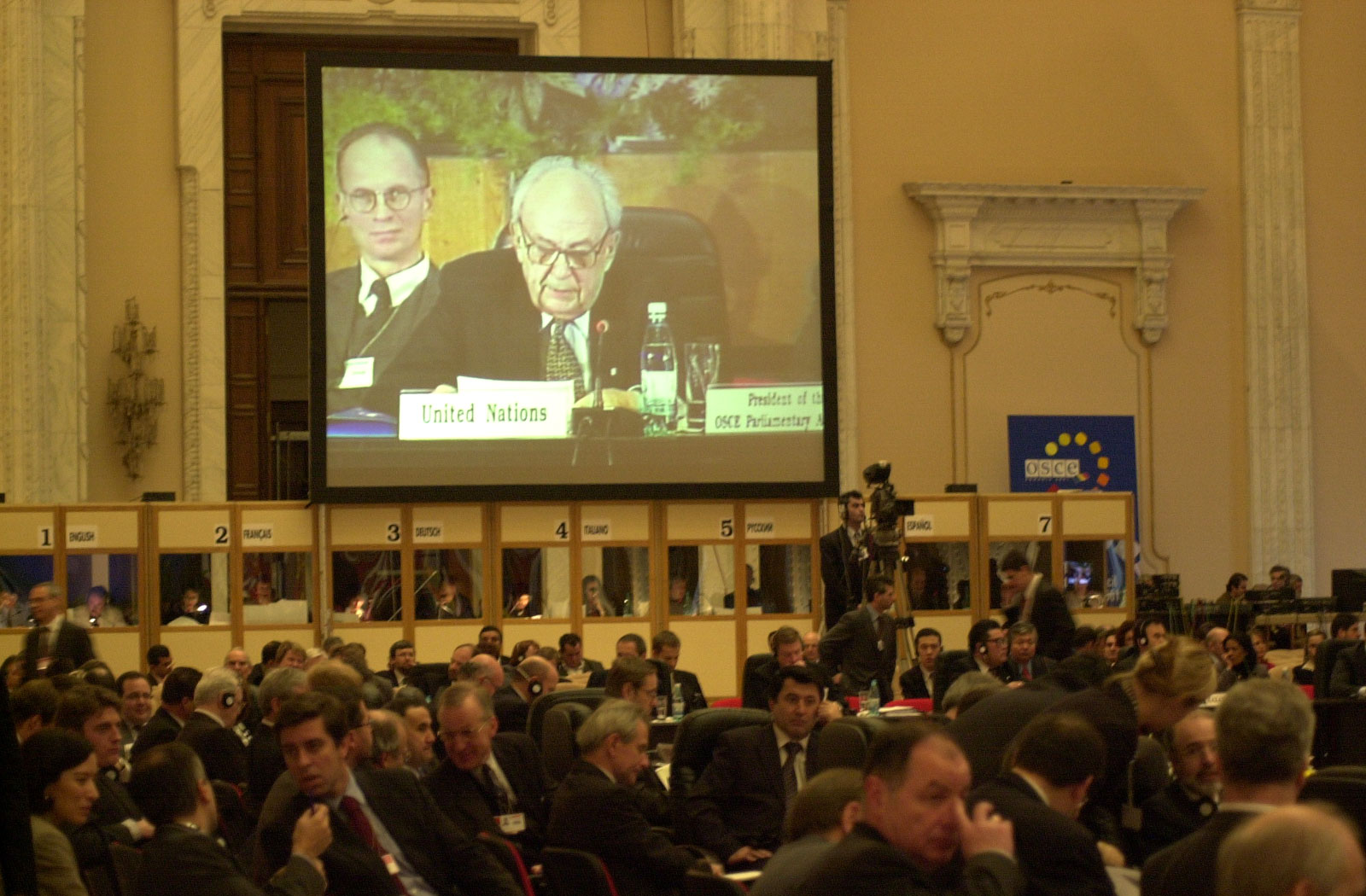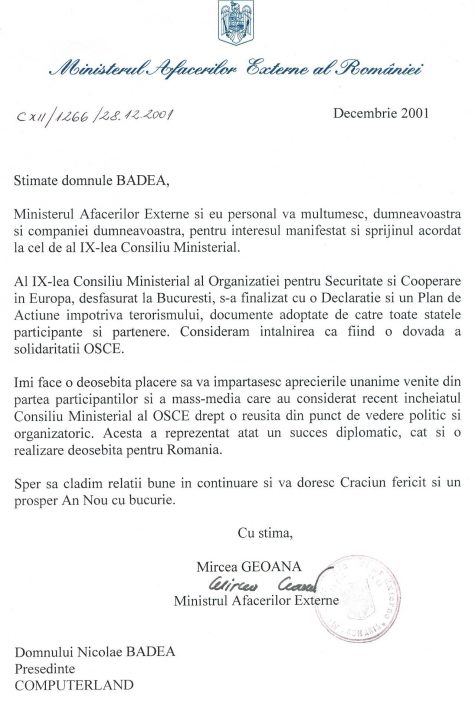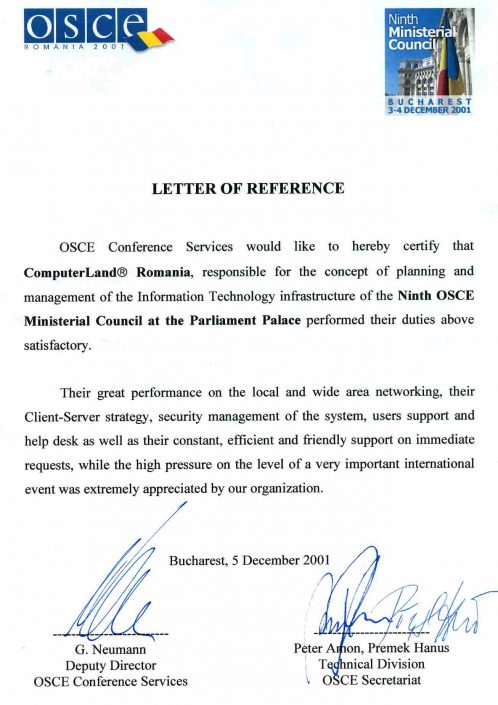Meeting of the Ministerial Council of the Organization for Security and Cooperation in Europe
The Foreign Ministers of the 55 countries participating in the OSCE met in December 2001, in Bucharest, at the meeting of the Ministerial Council of the OSCE, a moment that marked the end of the Romanian presidency of the Organization for Security and Cooperation in Europe.
The meeting in Bucharest was organized in accordance with the decisions taken at the summits in Helsinki (1992), Budapest (1994), Lisbon (1996) and Istanbul (1999).
Together with the President of the OSCE Parliamentary Assembly, the meeting was attended by the
US Secretary of State, Colin Powell, the German Foreign Minister, Joschka Fischer, the Russian Foreign Minister, Igor Ivanov, the EU Commissioner for External Relations, Chris Patten, the Minister of Foreign Minister of Israel, Shimon Peres and the foreign ministers of the other states participating in the OSCE.
Among the participants were Japan, South Korea, Thailand (states that are OSCE partners), as well as Algeria, Egypt, Israel, Jordan, Morocco and Tunisia (states that are part of the group of cooperation partners).
The participants adopted three documents: a political statement, a statement on the fight against terrorism and a statement on resolving situations in conflict zones.
Progress in the field of confidence-building and security measures provided for in the Dayton Accords, which entered into force in January 2002, was evaluated.
The declaration regarding the fight against terrorism contained provisions regarding the need to adopt common priorities and an action plan, as well as the need to coordinate OSCE actions in the field of the fight against terrorism with those to combat human or drug trafficking.
The meeting of the Ministerial Council of the OSCE marked the end of the Romanian presidency of the Organization for Security and Cooperation in Europe, a mandate in which important events took place.
The greatest success of the Romanian presidency was the reopening of the mission in Chechnya, a mission led by a Romanian diplomat, Alexandru Cornea, ambassador to Kiev.
The return of the OSCE to Chechnya had a special significance, all the more so as this was the main subject of the divergences between the OSCE and Russia, at the ministerial meeting in November 2000.
Among the events that took place during Romania's mandate, the Macedonian crisis was probably the most serious conflict in the Balkans after Kosovo, at a time when the Yugoslav Federation (Serbia and Montenegro) was particularly vulnerable, and the ethnic nature of the crisis made that the possibility of spreading the conflict is very high.
The OSCE was involved in the finalization and signing of the Ohrid agreements, which marked the end of the confrontations and the beginning of the process of amending the Macedonian legislative framework.
Computerland Romania ensured the optimal technical conditions for the smooth running of this event, the professionalism it demonstrated being appreciated by both the Ministry of Foreign Affairs and the Organization for Security and Cooperation in Europe.
ComputerLand Romania
We offer our customers excellence and value through quality products and services, building solid long-term relationships based on trust and loyalty.
Products & Services
Information. News
Contact and Program
Str.
Glucose Factory, no. 15, sector 2, code 020331 Bucharest, ROMANIA
+4 021 206 67 32
+4 021 204 67 33
Email: office@computerland.ro
Work schedule:
Monday-Friday: 10:00-18:00



